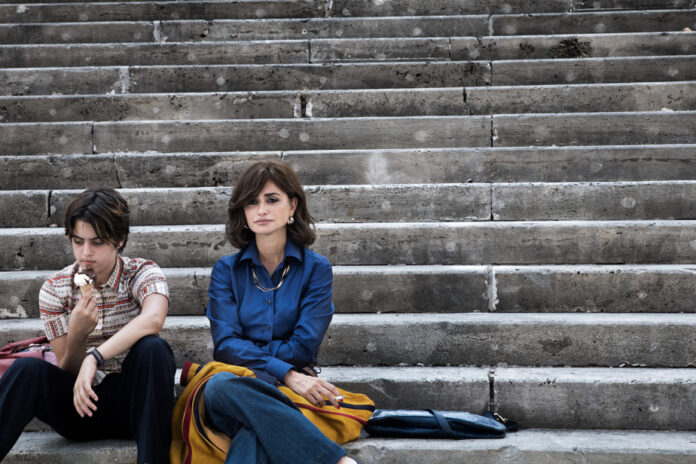Some will be tempted to say, seeing L’immensità (The immensity), a new film by Emanuele Crialese (Respiro), that we have still tacked on the past concepts of the present. In this case, the questioning of gender identity. This would be to ignore the fact that this story is, in large part, the one experienced by the Italian filmmaker in his early adolescence.
L’immensità is a family chronicle, set in Rome in the 1970s, about the Borghetti, a drifting married couple and their three children. Adriana (Luana Giuliani), the sassy 12-year-old, insists on being treated like a boy, even though she was born in a girl’s body. We call her Adri, but she would prefer to be called Andrea, a male name in Italy.
As she seems like an enigma to the people around her, Adri is convinced that she was sent to earth by aliens. His greatest accomplice is his mother, Clara (Penélope Cruz), unhappy in the home and depressed, who is suffocating in the traditional Italian family model, even more macho at the time. Clara can only give free rein to her fantasy and her suppressed surges of freedom in the presence of her children, who are both her buoy and her straitjacket.
Emanuele Crialese’s film essentially plays out on two tables: that of the girl who feels like a son – and who discovers the first love emotions -, and that of the housewife on the verge of a nervous breakdown, who does not like more her husband. Penélope Cruz, who plays this character of a Spanish immigrant in Rome in Italian, is particularly luminous.
No doubt because of the strong presence of the actress, Crialese’s homage to his own mother, and to the young girl he was, seemed to me to have at the start some semblance of Almodóvar accents. There is also this pretty scene, from the start, where Clara pretends to sing while dancing with her children, while they set the table according to a very precise choreography, to the sound of an old Italian pop song.
Despite its vintage finery of charming melodrama, L’immensità is not a light film. It is about domestic violence, physical and psychological, and the dismay of a young girl in front of a realization: the body in which she was born is not the one that corresponds to her.
Several musical sequences, mostly dreamlike retro interludes, fortunately allow the story to breathe. Adri imagines herself on the set of an Italian variety show, where she replaces rock singer Adriano Celentano and her mother, the pop diva of the time, Rafaella Carrà.
Thanks to a particularly careful and elegant staging, Emanuele Crialese’s first film in 11 years, presented last year in competition at the Venice Film Festival, stands out favorably from most nostalgic learning stories. This film co-scripted by Crialese is on the other hand rather smooth, in view of the heaviness of the subjects it deals with. As if the Polaroid that the filmmaker had kept from his difficult youth had retained a deceptive luster.








